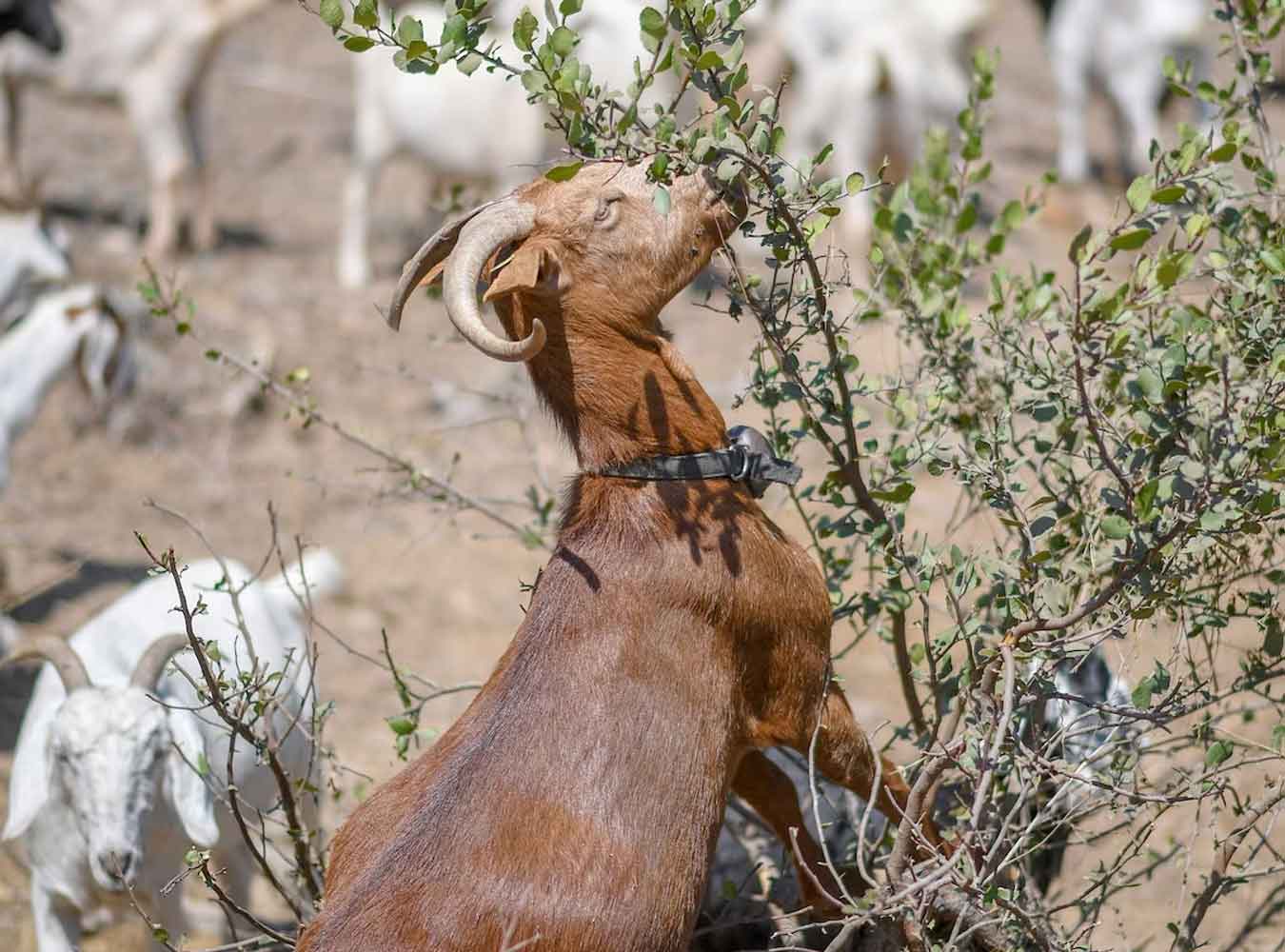
Goats have a well-deserved reputation as one of the planet’s most voracious and rugged herbivores. Perhaps then it’s unsurprising that goats are increasingly being recruited to help reduce the fuel load in the wildfire-stricken American West. The conditions for recent Western fires, such as California’s million-acre Dixie Fire (the largest solo fire in American history) have been driven by climate-change-related drought but have been made much worse by invasive plants and grasses which flourish during the rainy winter months only to turn to dangerous tinder in the summer.
Arguably the most effective and eco-friendly way to eliminate brush is to introduce herds of grazing goats who happily scale remote mountains and canyons that can be virtually inaccessible to people. Goats favor eating invasive plants over the less tasty and nutritious native flora and thereby help restore a natural, fire-resistant balance to ecosystems. By drastically reducing plant biomass, goats also limit subsequent regrowth. Digested vegetation is returned to the soil as dung lending resilience to landscapes by adding moisture and heat-absorbing properties that further reduce wildfire risk. Studies have shown that land treated by goats acts as fire breaks and can stop wildfires in their tracks.
In the article I propose, I’d take a look at how different fire-prone locations are using goat herds to reduce risk and prepare for next summer’s wildfire season which is already being forecast as having the potential to be the most devastating and apocalyptic on record. Although, employing goat herds to reduce brush is not a new practice (the Southern California cities of Anaheim and Laguna Beach have grazed large industrial herds for over 20 years) there is a growing network of more holistic practitioners, such as Lani Malmberg who co-founded the nonprofit Goatapelli Foundation which trains individuals in the use of goats specifically for wildfire prevention. This piece can be remotely reported; alternately I could spend some time with Malmberg and/or others to give a more personalized perspective.